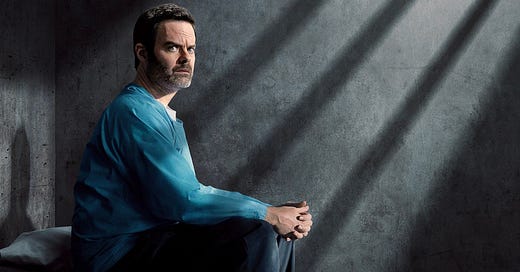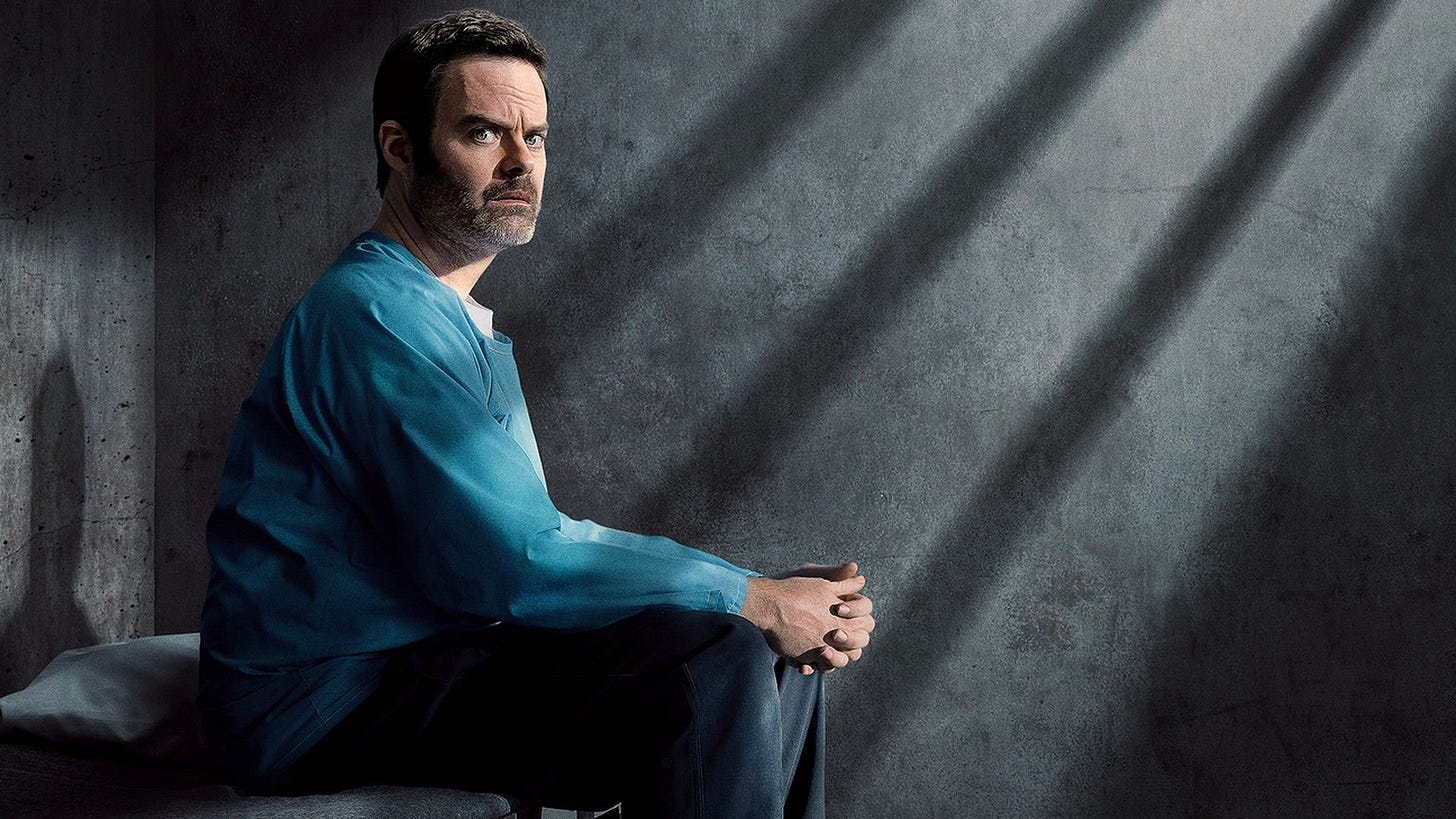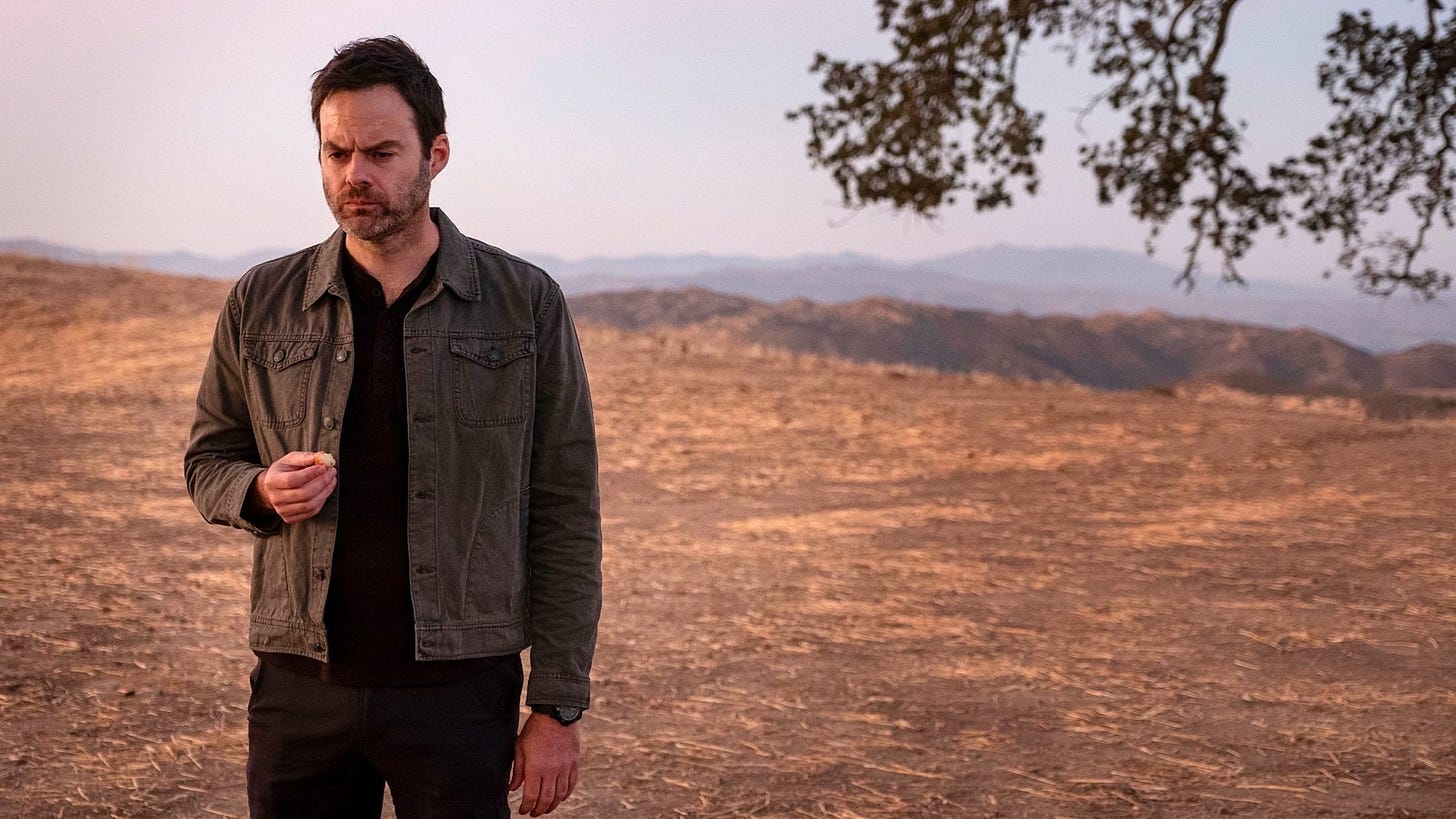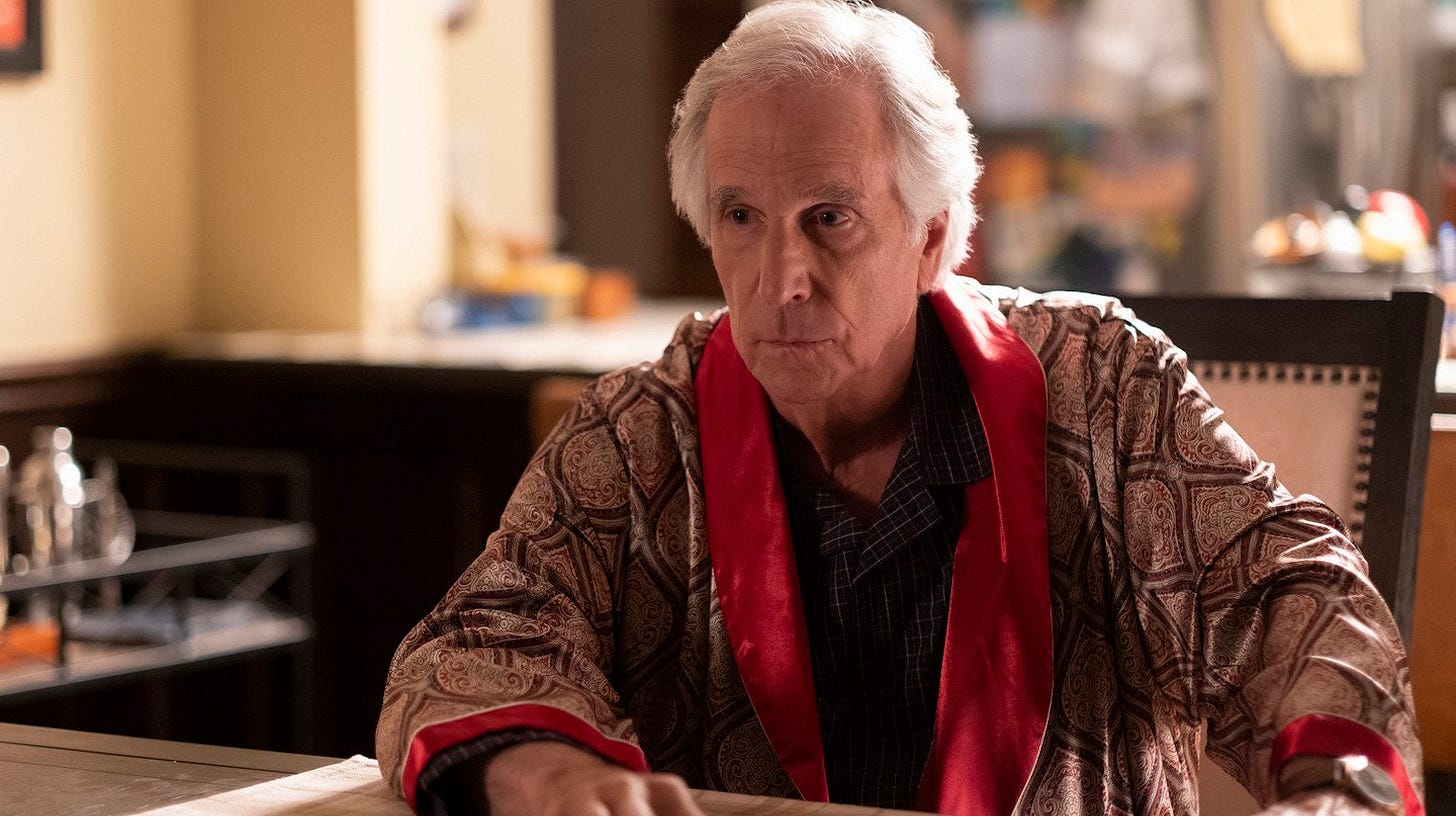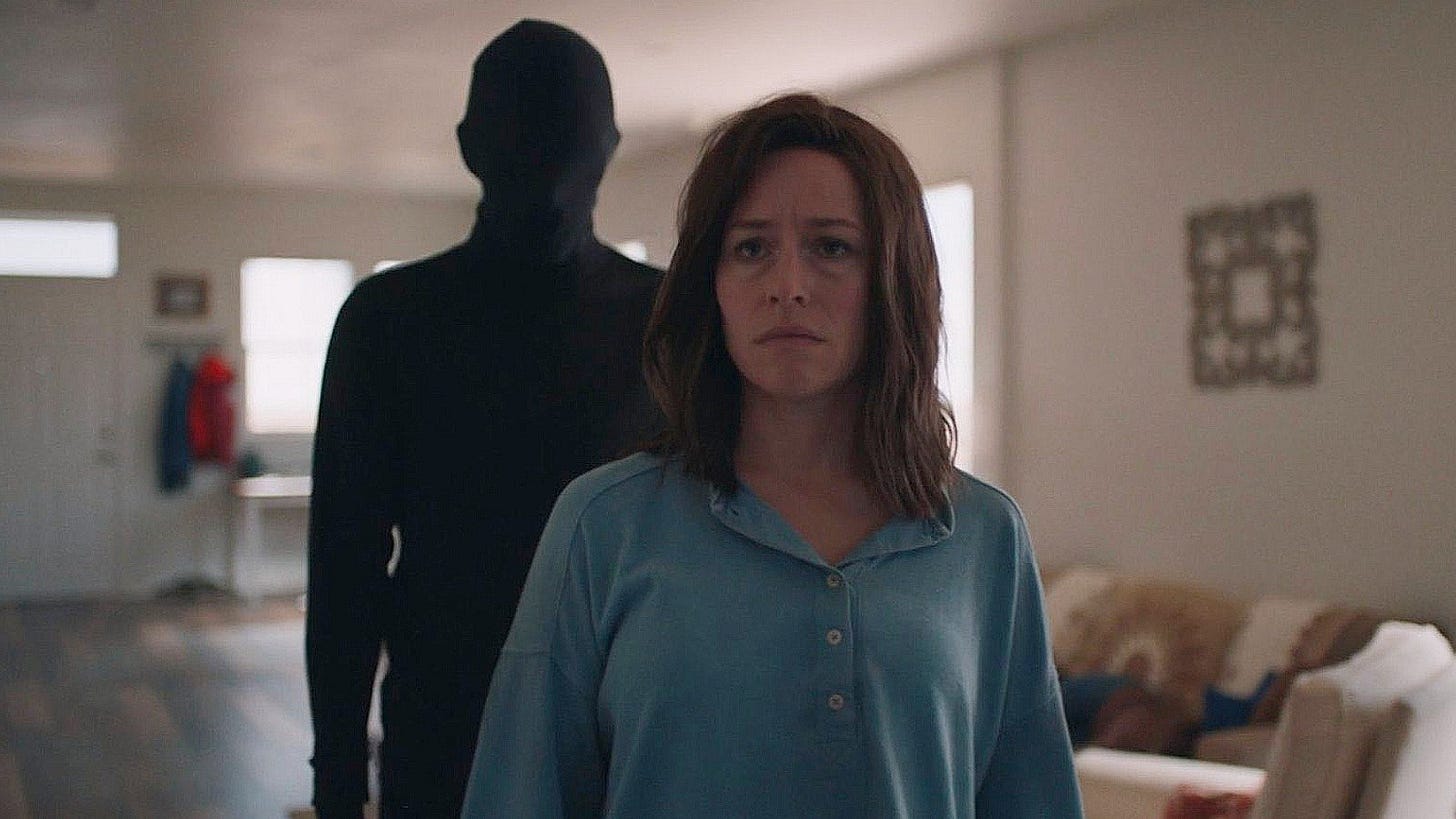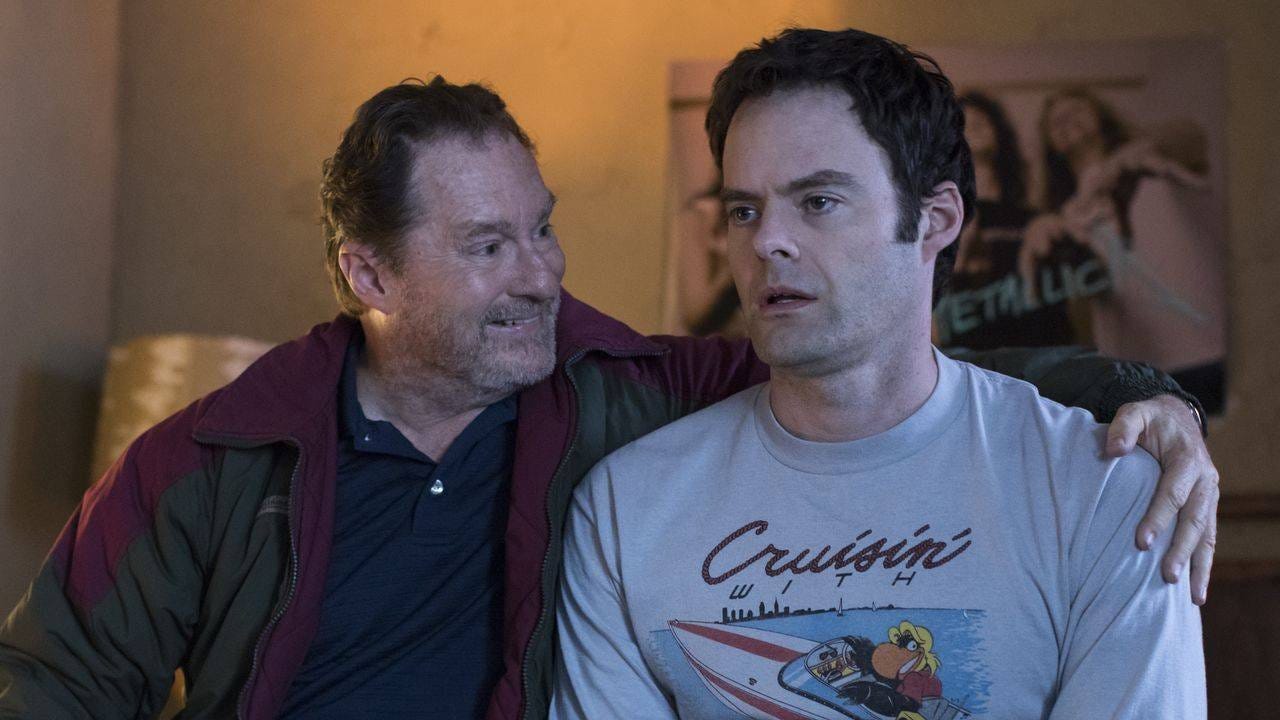
‘Barry’ Ends [Flawlessly] With a Bang!
It can’t be overstated how perfectly cohesive Barry feels as a viewer. Sally’s realization of the real world around her, Fuches’ lasting impression on Barry’s legacy as a father, and Gene’s complex emotional turmoil, solidify an unflinching, hum
Barry stars Bill Hader as a depressed, low-rent hitman from the Midwest. Lonely and dissatisfied in his life, he reluctantly travels to Los Angeles to execute a hit on an aspiring actor. Barry follows his “mark” into an acting class and ends up finding an accepting community in a group of eager hopefuls within the LA theater scene. He wants to start a new life as an actor, but his criminal past won’t let him walk away —can he find a way to balance both worlds?
— Official Synopsis
LIGHT SPOILERS AHEAD
LIGHT SPOILERS AHEAD LIGHT SPOILERS AHEAD
HBO’s Barry recently concluded its final season. I must say, that over the course of these few short years, from 2018 until now, I have really come to love and appreciate the whole entire filmmaking team for what they've been able to accomplish on the small screen. It's one of the small handful of shows that knew how to balance comedy and action perfectly. Though the show's name comes from its title character, I've never seen a series with similar inclinations function quite as well as an ensemble piece. It's no surprise, then, that Barry is an Emmy nominated show, which rightfully earned all of its accolades—and perhaps, even still remains woefully underrated.
Co-created by Bill Hader and Alec Berg, Barry follows a low-level hitman (played by Bill Hader) on his journey to become an actor. When Barry attends Gene Cousineau’s (Henry Winkler) acting class, he discovers a [supposedly] normal way to cope with his murderous reality. Along the way, he meets the eventual love of his life, Sally Reed (Sarah Goldberg), and fights numerous foes like NoHo Hank (Anthony Carrigan) and his lover Cristobal Sifuentes (Michael Irby). From the sweeping fields of the Midwest to the concrete jungle, Monroe Fuches (Stephen Root) has followed him in somewhat of a paternal capacity and yet is largely responsible for Barry’s cruel existence as a hitman.
Certainly, the show’s quaint summary doesn’t quite capture the emotional heights it achieves. When you think about the progression of the story from the first season to the very last, you really begin to recognize the utter devolution of each character. In 2023, they are a mere shell of their former selves. Between the dynamics of each character, there’s enough mental torment for an entire world. One of the more fascinating themes the show explores is how people react to situations outside of their natural space and routines; and how these circumstances mold who we become. It’s why the ensemble format works so well within the confines of the show. Without showing how one hitman can chart the course for everyone’s life around him, there’s no thematic basis for a show like this with radically different characters.
Think of how Barry’s life unfolds after his tour in Afghanistan. In our political discourse we often put a lot of emphasis on how the military affects individuals after their service, particularly when it comes to mental health. Militaristic PTSD was something that the show spent a lot of time with in its first two seasons. Barry must relearn how to be a functioning member in society if he wishes to leave the death and destruction in his past. But the consequences of his former life corrupt a potentially bright acting career and future family in later seasons. The show uses the horrors of war as a means to sympathize with the main character and prove his reluctance towards violence. After all, his actions in Afghanistan lead to the murder of an innocent man.
As he tries to reconcile with the little time he has left, the fourth season shows the character [successfully] escaping prison and attempting to parent his son, John, via a radical time jump. In an attempt to shelter his family from the skeletons in the closet, religion becomes prevalent in Barry’s life (paving way for a few laughs in an otherwise melancholic blur). A deep evolution has occurred in our main character, or so we think, until the entire fictionalized shield he’s created is threatened. Still, between the third and the fourth season the metaphorical curtain has fallen so low to reveal how truly lost he is (both in his psyche and in physical demeanor). The constant deadpan expression from Hader seals his fate in a lonely existence.
Soon, Barry pivots its attention towards how Gene lives with the loss of a loved one and a former life. In the final season, Gene faces mortality. No longer can he pretend to be the most eccentric Hollywood star under the crushing weight of failure and incessant anxiety (though it doesn’t stop him from trying) but he might be able to retain his humanity towards the end of his life. Winkler’s performance over the years in this role is notable and you can almost certainly gauge how Barry has affected his physicality from a snobbish acting coach to a shriveled shell of a person. Not everyone seems to love the progression of his story in the final season, but it’s undeniable that Winkler’s screen presence is never lost on the viewer–even when he isn’t present in each scene.
Elsewhere, Hank battles with an internal identity crisis that stems from his relationship with Cristobal and the ties to their former lives. If you were looking for a happy ending and a sanctuary from the jumbled lives of the other characters, you won’t find it even with them. Hank, who was once the driving force behind Barry’s laughable relief, doesn’t seem to be himself at all anymore. Then again, is anyone? Hank may not be the most trustworthy if you’re outside of his close circle but he has a deep connection with Cristobol, and at points in the series, even Barry. For this reason, Hank is one of the more fascinating characters on Barry and certainly a fan favorite.
Turning our attention towards Sally, we begin to understand just how Barry’s existence destroys the lives of everyone he comes into contact with. Beginning as one of the most unlikable characters in the show, she becomes somewhat of a symbol for collateral damage. She’s not involved with Detective Janice Moss’ investigation and is oblivious to nearly everything around her. Sally grieves her fleeting 15 minutes of fame [and the brutal reality of PTSD in her own life] in Season 4. Not only did she suffer a blow to her self esteem when Joplin was branded a failure from the Gods of the streaming algorithm, but also a horrific assault. The trauma manifests in one of Season 4’s most nail-biting sequences which had my jaw on the floor. Think of 2008’s The Strangers level of tension, but with a surrealistic touch on the cinematic landscape. The show frequents the bizarre expression of surrealism in its storytelling–especially prevalent in one of the series’ best episodes: Season 2’s chaotically charming “ronny/lily.”
Fuches, who has never been able to accomplish anything by himself, learns to correct his mistakes long after it’s too late at the show’s close. We get several snippets of Barry in his youth and how their relationship formed from such an early age. Yet, all that is lost when Fuches and Barry go to prison. He has never had to deal with the consequences of his actions under the law because he has spent most of his life in the Shadows (and for a brief period of time in Chechnya). Don’t forget that Fuches for a large part of the series is a central antagonist in Barry’s story. Their arrest doesn’t change their love-hate dynamic and perhaps even pushes Fuches further away from his love and little affection for Barry. What kind of person does he become when his surrogate son leaves him stranded in prison? The Raven, of course. This new identity gives Root a chance to portray a new side of the character that is absolutely terrifying and somehow…even sexy?
Narritively, these plots are told at different points throughout the series—strung along at a beautiful pace that crescendos in the final moments of the series. It can’t be overstated how perfectly cohesive Barry feels as a viewer. Sally’s realization of the real world around her, Fuches’ lasting impression on Barry’s legacy as a father, and Gene’s complex emotional turmoil, solidify an unflinching, human narrative at its core. With snappy 30-minute episodes and 8 episodes per season, Barry’s rewatchability is endless. HBO really does know how to end a show, unless it’s Game of Thrones, apparently. Barry ultimately reminds us that people can change, despite their natural tendencies as individuals.
So clearly, the show doesn’t feel too comedic now after that explanation, does it? Of course, I’d be remiss not to mention the action set pieces. Whether it be the monastery massacre from Season 2, the minimalist dirt bike oner in Season 3, or the Chechyan police raid, Barry prioritizes intensity with purpose. You might have been expecting them to scale the scope of the action for the grand finale, but instead they chose to remain consistent by not oversaturating the episodes with needless set-pieces. Instead, these explosive instances are scattered throughout– at random–to maximize the shocking nature of the moment. It’ll leave you saying, “Oh, wow…” at the impressively practical technique behind the camera.
Succession is getting all of the media’s attention due to wrapping its final season, but if you haven’t finished, or even started, Barry, you should know that it’s truly must-watch television programming at its finest. I promise, you won’t regret it.

